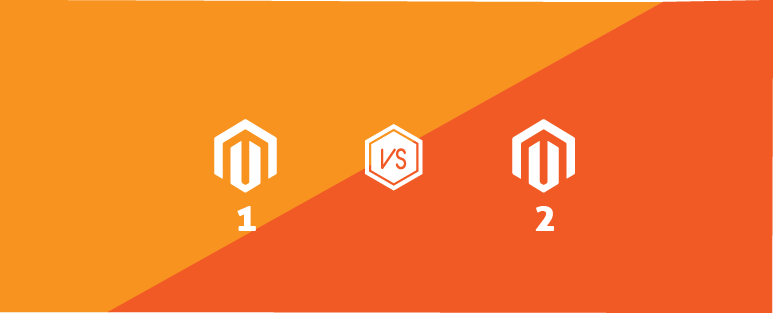Magento vs. Shopify
Get the pros and cons for Magento vs Shopify. Why we think Magento is the right platform for your eCommerce business.

The management of a product catalog is an integral component of an eCommerce business. It is even more important for businesses that sell a high number of products to multiple sellers. Both proper product management and creating a system that provides key product information to the target audience are essential for the smooth running of any online store.
Managing a product catalog is not always easy, however, especially when a business begins to show rapid growth. The process often becomes tedious, and problems may start to arise with the management of product data. When this happens, it might be time to switch to an efficient catalog management solution.

The benefits of effective catalog management are not just limited to customers. Businesses also benefit in the long run. Not only will a proper product catalog make the store operations smoother, but it will also help promote sales. In addition, consistent and robust product data will help improve SEO efforts.
If the focus is not placed on management of the product catalog, it might become difficult to keep track of important information. Online stores depend on accurate product data because there is no room for errors once products are uploaded.
If you want your product catalog to be ready to meet the needs of your business, you need to ensure that it contains:
There are several catalog management solutions that businesses can use to improve product management. These include Product Information Management, Enterprise Resource Planning, and Magento Catalog Management.
PIM (Product Information Management) is the process of handling all product-related data and content that is required when running and managing an online store. The data created through PIM is also useful for multichannel distribution.
When you run an online store, there is a great deal of product information that needs to be managed. Every product has to be categorized, and titles and descriptions have to be written. Technical specifications, such as weight, ingredients, or measurements, related to the product have to be entered. This is the case for images, videos, and any documents relevant to the products as well. In addition to basic product details, other key product data may also be required. Marketing data, sales information, channel-specific information, supplier and manufacturer data, promotions and discounts could be required as well.
With the PIM software solution, it is easy to consolidate and manage the entire product catalog in one place. There are different PIM tools such as Product Information Manager (PIM), Product Image Manager (PIM), Product Content Manager (PCM), Product Data Manager (PDM), Product Resource Manager (PRM), and Item Master that you can choose from. The goal of each tool is to enable the merchant to create a central product database where they have all the information they need for each and every product.
When you manage your product catalog with a PIM system there are many aspects you can organize. You can easily centralize any scattered data, enrich product descriptions and specifications and track progress. You can also link images and documents, categorize products, publish product catalogs, build product feeds, create product data for multichannel syndication and have access to all this information in one central location.
Managing a product catalog through PIM is useful for companies of all sizes. The software allows the merchant to collect data from multiple suppliers and streamline the product information and collection process.
ERP is another software solution that can help online businesses streamline their core processes. ERP offers a wide variety of functionality, and each application can be customized according to the needs of the user. It can help with the management of accounts, assets, the product catalog, content, customer relationships, human resources, orders, users, and warehousing. As far as product catalog management is concerned, ERP can help with product categorization, prices and taxes, promotions, and the day-to-day operation of a store.
ERP comes with a templating kit that can be customized according to the client’s needs. The software is well-equipped to handle different business processes from manufacturing to warehouse and order management, and from HR to accounting.
If you’re an online business with multiple products and you are managing multiple sellers, you will not be able to function for too long with a simple Excel sheet. Magento is the ideal choice to ensure your online store functions properly with a centralized product database. Some of the most common Magento software used for managing product catalog include:
Managing a product catalog can become complicated fairly quickly if a business is growing fast. By using a platform like Magento, you will be able to improve the overall functionality of your online store as well as improve your customer’s purchase experience.
Magento Catalog Management will help streamline the buying process by creating an easy-to-use and easy-to-understand product database. Magento’s optimized features will help you create the most efficient product catalog. Your customers will be able to find what they need and access the information they need to make an informed decision. You can personalize your product line on the basis of categories, prices, or almost any other way you wish. Flexibility is one of the biggest strengths of the Magento platform. This is extremely useful when managing a product catalog.
If you want a platform that will help you in managing the product catalog and product database for your online store check out Magento Catalog Management solutions. Magento is an all-in-one business solution designed to help improve your business processes and maximize productivity and sales.
Contact us to get the best Magento development strategy. Focus on your business rather than technology.

Get the pros and cons for Magento vs Shopify. Why we think Magento is the right platform for your eCommerce business.

Online reputation management (ORM) is really important for any business. eCommerce ORM really matters if you are planning to sell.

Here you will find 5 Reasons Why Magento 2 is Better Than Magento 1. Don't wait for Magento 1 to stop support. Migrate now!